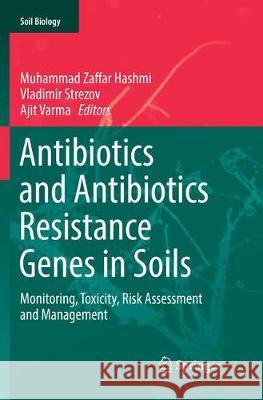Antibiotics and Antibiotics Resistance Genes in Soils: Monitoring, Toxicity, Risk Assessment and Management » książka
topmenu
Antibiotics and Antibiotics Resistance Genes in Soils: Monitoring, Toxicity, Risk Assessment and Management
ISBN-13: 9783030097653 / Angielski / Miękka / 2018 / 419 str.
Antibiotics and Antibiotics Resistance Genes in Soils: Monitoring, Toxicity, Risk Assessment and Management
ISBN-13: 9783030097653 / Angielski / Miękka / 2018 / 419 str.
cena 603,81
(netto: 575,06 VAT: 5%)
Najniższa cena z 30 dni: 578,30
(netto: 575,06 VAT: 5%)
Najniższa cena z 30 dni: 578,30
Termin realizacji zamówienia:
ok. 16-18 dni roboczych.
ok. 16-18 dni roboczych.
Darmowa dostawa!
Kategorie:
Kategorie BISAC:
Wydawca:
Springer
Seria wydawnicza:
Język:
Angielski
ISBN-13:
9783030097653
Rok wydania:
2018
Dostępne języki:
Numer serii:
000292997
Ilość stron:
419
Waga:
0.67 kg
Wymiary:
23.88 x 15.62 x 2.26
Oprawa:
Miękka











